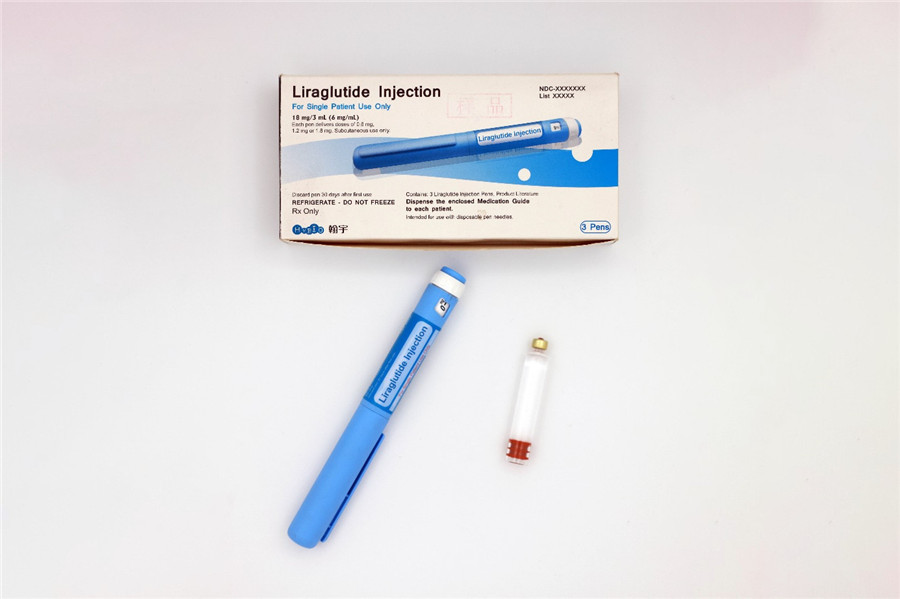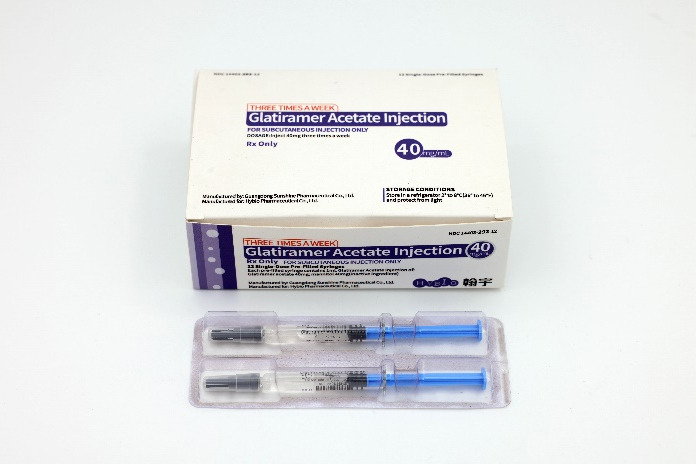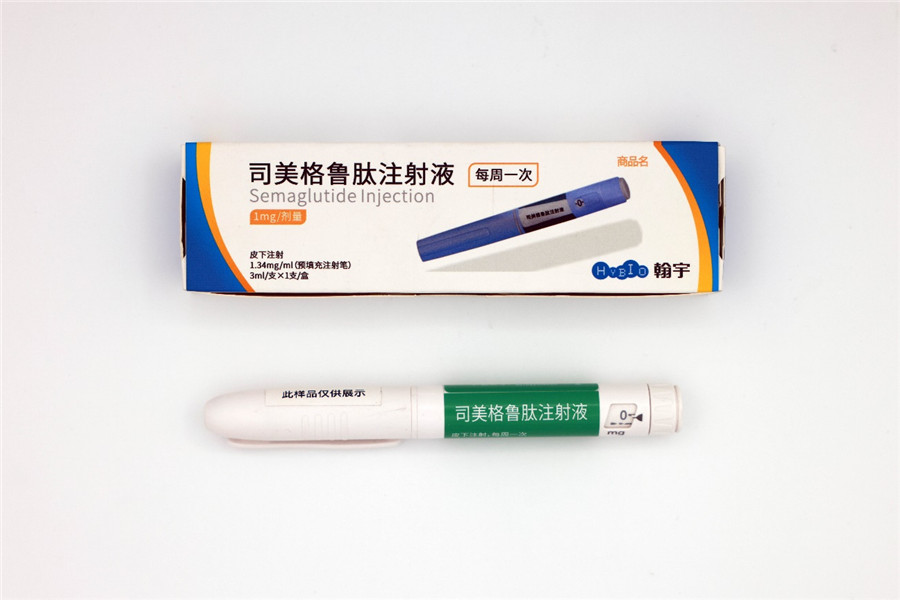01020304
Semaglutide Injection
product description
Chemical Composition:
Semaglutide is a synthetic analog of the human GLP-1 hormone, modified to ensure stability and prolonged action in the body, facilitating once-weekly administration.
Mechanism of Action:
It activates GLP-1 receptors, leading to increased insulin release in response to high blood sugar, decreased glucagon secretion, and slower gastric emptying, which helps in controlling appetite and food intake.
Indications and Usage:
Approved for managing type 2 diabetes mellitus in adults to improve blood glucose levels as part of a comprehensive lifestyle program, including diet and exercise. It's also indicated for chronic weight management in adults with obesity or overweight in the presence of at least one weight-related ailment.
Administration and Dosage:
Semaglutide is administered via subcutaneous injection once a week, with the dose being gradually increased to minimize gastrointestinal side effects and optimize therapeutic effects.
Efficacy and Outcomes:
Clinical trials demonstrate significant improvements in HbA1c for diabetes patients and considerable weight loss for patients with obesity when used alongside diet and exercise.
Side Effects:
Common adverse effects include gastrointestinal symptoms such as nausea, vomiting, diarrhea, abdominal pain, and a potential risk for pancreatitis. Rarely, it may cause thyroid C-cell tumors.
Contraindications and Precautions:
Not recommended for individuals with a personal or family history of medullary thyroid carcinoma or Multiple Endocrine Neoplasia syndrome type 2. Care should be taken in patients with a history of pancreatitis or diabetic retinopathy.












